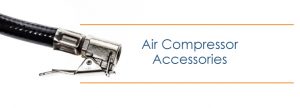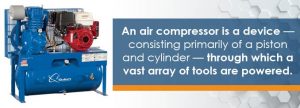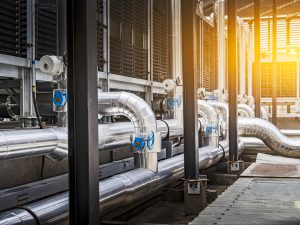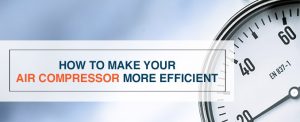Overview of Air Compressor Accessories

The air compressor is one of the most vital components in the modern-day industrial framework. From the cars people drive to the buildings in which people work, shop, dine and live, just about every nut, bolt and finishing job is the result of air-powered tools and machinery. Despite its vast importance, however, the air compressor […]
Read MoreThe Value of Logging and Auditing an Air Compressor System

Throughout many industries and businesses, tools and machinery are powered by compressed air. Reliable and powerful, compressed air processes are essential for keeping today’s businesses running. However, compressed air systems are often the most taxing systems for a shop’s energy consumption. Consider these statistics from the Compressed Air and Gas Institute (CAGI): Its estimated that […]
Read MoreInside the Energy Efficient Design of Variable Speed Compressors

Pressurized air is the driving force in a vast range of industrial applications. From production plants to auto-repair shops, air compressors power everything from robot arms to pneumatic tools. Many of these processes replicate functions that were once performed with conventional tools and human hands. For example, air-powered sanders, painters and dryers can complete the […]
Read MoreThe Benefits of Efficient Air Compressors

There are many uses of compressed air. In fact, 70 percent of all manufacturers use a compressed air system, for use with machine tools, material handling, as well as spray painting and separation equipment. One reason for that popularity is the safety and convenience of using air as a resource, as opposed to other energy […]
Read MoreComplete Guide to Rotary Screw Compressors

No matter what you do, you want the right tool for the job. For various applications, a rotary screw air compressor is the right machine. Whether you’re familiar with air compressors or you don’t know a lot about this particular type, we’re here to help. We’ve put together a complete guide to rotary screw air […]
Read MorePortable Air Compressors

When you need efficiency and industry-leading power in a small package, look no further than Quincy Compressor’s portable air compressors. Our compressors are suited for home and DIY use while still providing the reliability and power necessary for commercial applications. We build our compressors for the long haul, delivering great value in almost any situation. […]
Read MoreWhat Types of Tools Can Be Powered by Air Compressors and How Do They Work?

An air compressor is a device — consisting primarily of a piston and cylinder — that powers an array of tools by means of pressurized air for various applications. In the fields of construction, auto maintenance, furniture assembly and woodwork, the majority of applications rely on compressed air for speed and precision in everything from drilling, […]
Read MoreWhy Is My Air Compressor Losing Pressure?

The U.S. Department of Energy estimates that industrial operations use 10% of their electricity on creating compressed air. As such, compressed air can be a costly investment. Inefficient production systems reduce profits, sometimes threatening the ongoing financial viability of businesses. With such intense price competition, manufacturers need to identify areas of inefficiency. At industrial facilities, many unseen errors can cause reductions in […]
Read MoreThe Purpose of Drain Valves

When you use a rotary screw or reciprocating air compressor, water vapor is released. It then condenses into a liquid, falling to the bottom of the air tank. A drain valve helps to remove the accumulated water before it causes significant damage to the compressor, which would require extensive repairs or replacement. Learn more about why you should […]
Read MoreHow to Make Your Air Compressor More Efficient

Many industries use compressed air systems to power tools and complete tasks. However, compressed air uses a significant amount of energy, resulting in higher costs for manufacturing plants. One horsepower of compressed air requires 8 horsepower of electricity. If systems run at limited efficiency, facilities might use more energy than they need for daily operations. Optimizing compressed […]
Read More
